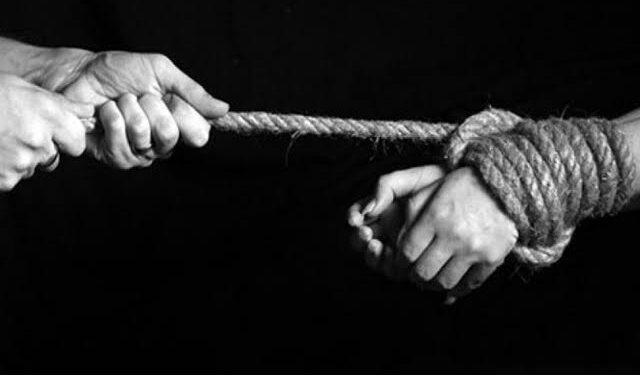By John Ikani
Nigeria and the Republic of Niger have signed a Memorandum of Understanding (MOU) in Abuja with the aim of eliminating human trafficking in both countries.
Director-General, National Agency for the Prohibition of Trafficking in Person (NAPTIP) Dr. Fatima Waziri who signed on behalf of Nigeria, expressed confidence that the collaboration would achieve positive results.
Signing on behalf of the republic of Niger, Ousmane Mamane said the synergy between the two countries on issues relating countering human trafficking would also promote exchange of information and experience regarding their respective laws against illegal Migration.
The exercise was initiated and monitored by the International Centre for Migration Policy Development (ICMPD) which expressed commitment towards eliminating the menace of human trafficking in Africa.
The Head of the ICMPD West Africa Office Dr. Mojisola Sodeinde who appreciated the efforts of both countries for their understanding and peaceful existence said the initiative came as part of activities implemented by ICMPD within the framework of the project to stem the tide of human trafficking in Persons by the kingdom of the Netherlands.
What you should know
Niger is a source, transit, and destination country for children and women subjected to trafficking in persons, specifically forced labor and forced prostitution.
Children are trafficked within Niger for forced begging by religious instructors known as marabouts; forced labor in gold mines, agriculture, and stone quarries; as well as for involuntary domestic servitude and forced prostitution.
The Government of Niger does not fully comply with the minimum standards for the elimination of trafficking; however, it is making significant efforts to do so.
Similarly, Nigeria occupies a central position in West Africa as a country of origin, transit and destination for victims of human trafficking for labour exploitation and forced labour.
Men, women and children from Nigeria are trafficked to Western Europe, the Middle East, and West and Central African countries.
Victims from neighbouring countries of Benin, Burkina Faso, Cameroon, Mali and Niger are also exploited in Nigeria in a wide range of industries, including domestic work, mining, stone quarrying, manufacturing, and work in farms and plantations.
NAPTIP was established by the Trafficking in Persons (Prohibition) Enforcement and Administration Act 2003, and is now governed by the 2015 replacement Act.
There are varying views on the effectiveness of NAPTIP, with lack of funds and issues with corruption cited as barriers to success. In particular, the ability of NAPTIP to fully support and prioritize the protection victims of human trafficking has been questioned.

































